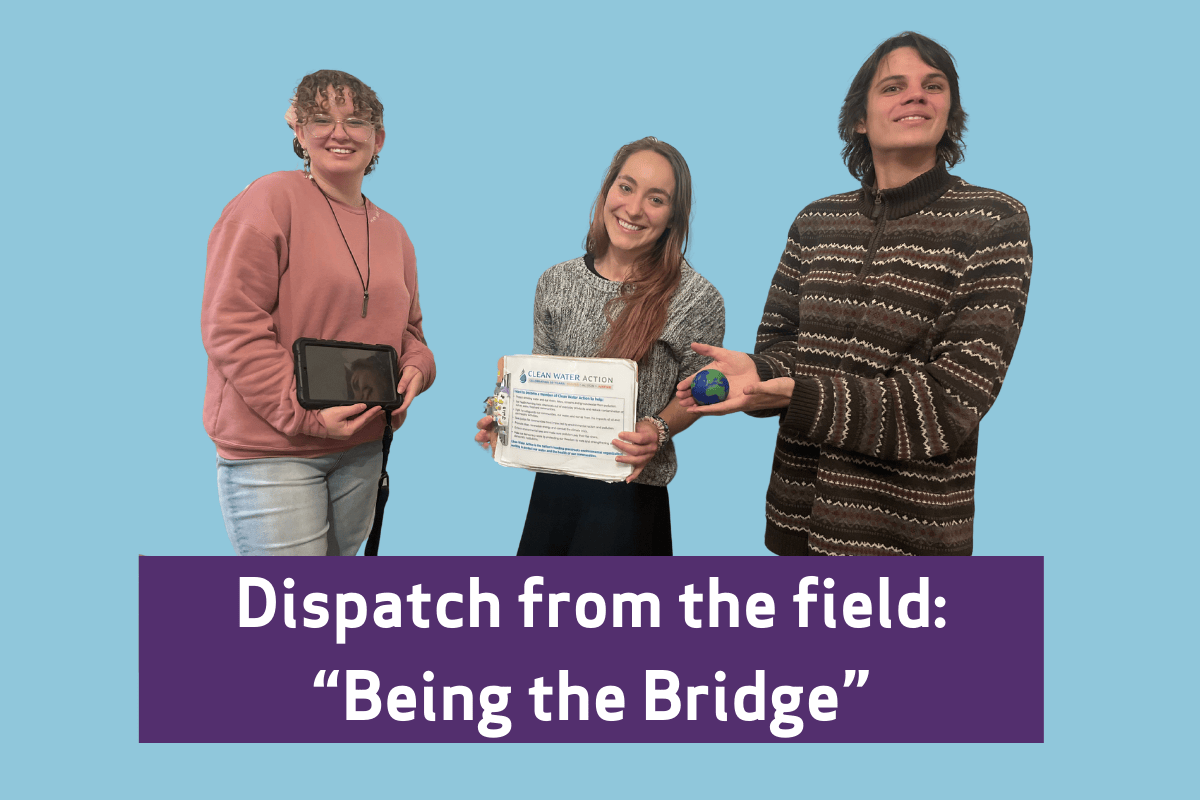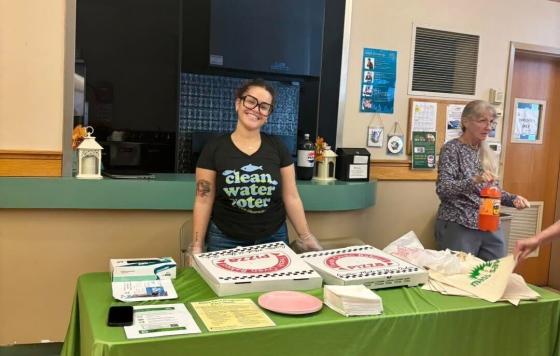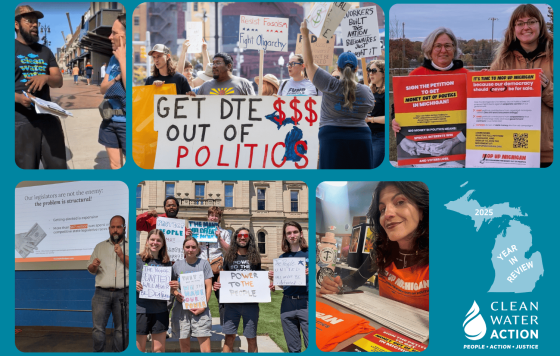
In the sub-freezing temperatures of January, I started working as a door-to-door canvasser in Clean Water Action’s Northampton office. I learned quickly that this is a job about turning complex issues into simple actions all while juggling a clipboard, a tablet, and whatever checks, cash, or letters I am handed. But that’s not what makes canvassing so effective. The heart of door-to-door canvassing is building genuine connections with strangers. It is one half of a bridge between everyday folks and politicians.
Previously, I was only privy to the door-to-door side of this bridge. I would knock on a door, ask someone to write letters to their state Representative and Senator, ask them to donate to Clean Water Action to “keep us in the fight for another year,” and I just had to assume that Julia (the Northampton Canvass Director) gave these letters to someone we could trust to represent us at the State House. So, when Julia offered to send me to Boston for a day to meet this trusted someone, I was beyond stoked.
Upon meeting this trusted someone (who turned out to be three people: Elizabeth, Emma, and Laura) I was a little disappointed to learn that they were not witches who used arcane tricks to turn my letters into co-sponsors on a PFAS ban. They were just people - like the rest of us. What was much more exciting to learn was that knocking on the door of every politician in the statehouse is not so different from knocking on the door of every person in the neighborhood.
Regardless of whose door I’m knocking on, I need to express what our issues are and why you should care in less than one minute, and I need to be enough of an expert on our issues to inspire trust in me and in the fact that the world can get better if we work for it. On the door-to-door side, this comes down to my ability to communicate clearly and quickly, but in the State House, nothing is more effective than letters from constituents. Working in the State House requires working in a new (and sometimes cramped) office every two years, throwing your job security to the whims of elections, and listening to a non-stop barrage of complaints; in short, it is a labor of love. It sounds corny to say but when handing stacks of letters from constituents to politicians and their staffers you can see in their eyes how much they care.
There is not a person I know who hasn’t received a letter that meant the world to them or had a conversation with a stranger that will last a lifetime. While most of my conversations with our members follow the same general script—I am Violet, please donate and write a letter so we can keep our communities healthy, thank you—it is not uncommon for me to meet a person who offers me tea in a handmade mug, who tells me about the salamander crossing event that’s coming up, or who shares their concerns about their mom’s apartment which has mold in the vents. Different actions are possible when we interact human to human than when we interact as constituent to canvasser, canvasser to lobbyist, and lobbyist to politician. This is just as true in the state house as it is in our neighborhoods.
As I knock on doors each night, I can’t help but think about town criers who, prior to the printing press, would memorize the words of the king and wander from town to town repeating them to anyone who would listen. I can’t help but imagine that the people in these towns were moved by the town crier’s words, and I can’t help but wonder if the town crier ever memorized the words of the townsfolk just to carry them back to the king. If they did, I don’t know if the king would’ve listened, but I do know that our elected officials in Massachusetts are listening to the messages from their constituents. And I’m honored to keep being the bridge between them.


